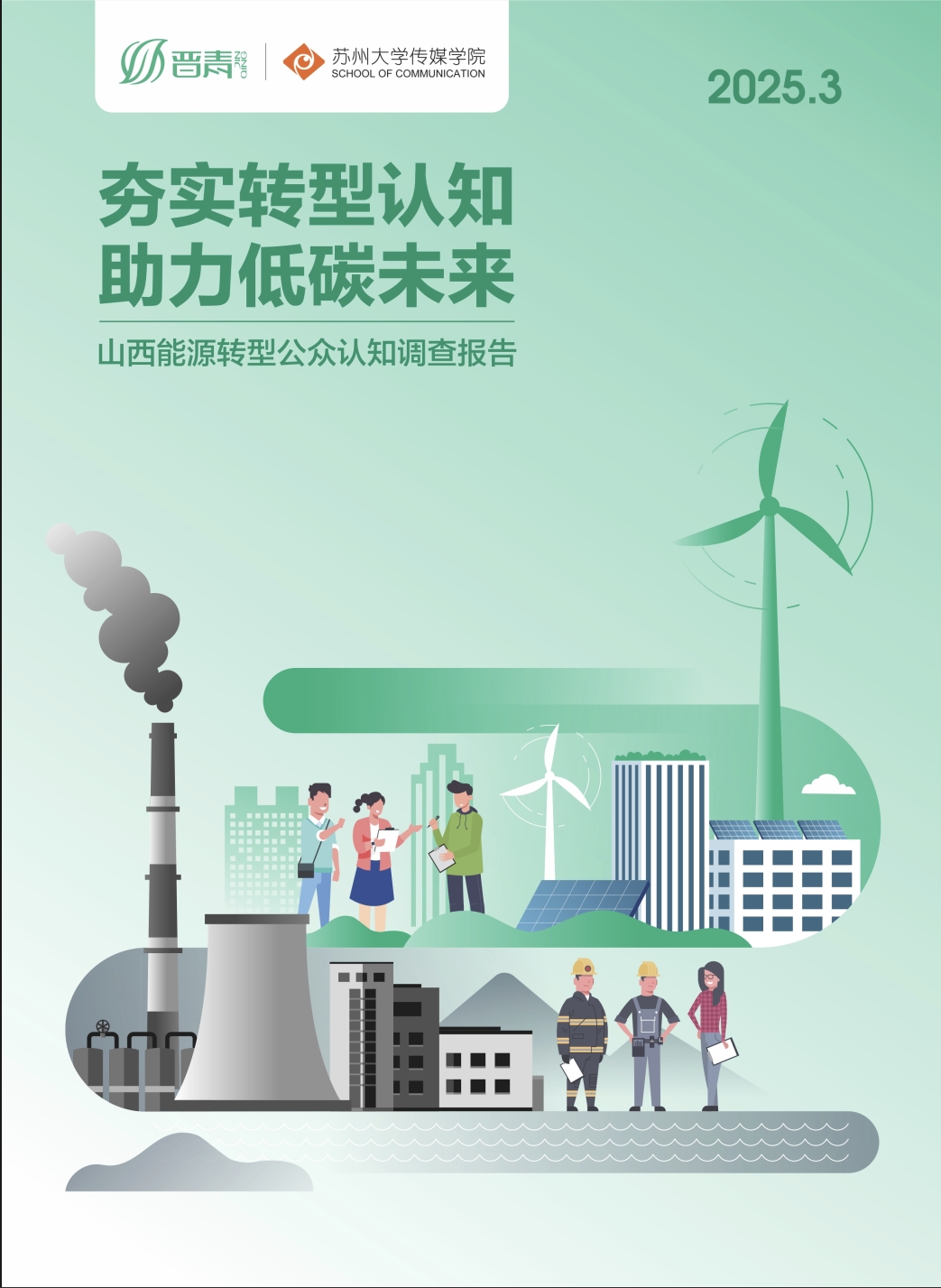Survey: Public Support for Shanxi's Energy Transition Strong, But Awareness and Readiness Remain Low

(Taiyuan, China – March 20, 2025) A groundbreaking new survey in the world's largest coal producer Shanxi has revealed overwhelming public support for the province's transition away from coal, but a significant gap remains in public awareness and readiness. Conducted by environmental group Shanxi Green Youthand Suzhou University, the survey gathered responses from over 9,000 citizens across Shanxi, including over 1300 people working in the coal industry.
The study, titled "Informed Transition, a Public Awareness Survey in Shanxi" has found that more than 70% of respondents support China's climate goals known as the Dual Carbon Targets or peaking carbon emissions before 2030 and achieving carbon neutrality by 2060.
Over half (51.9%) of the surveyed think that Shanxi should reduce its coal consumption in the future while nearly 80% believe Shanxi should expand its use of renewable energy, particularly solar and wind power. However, challenges remain. Over 40% of those surveyed oppose coal mine closures and the phase-out of coal power, while only a third feel they have the necessary skills to adapt to economic changes and possible job losses brought by the energy shift.
Diverging Views Among Coal Workers and Youth
The survey highlights stark differences in perception among key demographics. Coal industry workers are significantly more concerned about the transition's impacts, with nearly 40% fearing that it will weaken Shanxi's economy, compared to 24.8% of the general public. More than half of coal industry workers expect rising unemployment as an inevitable consequence.
In contrast, young people under 24 years of age have exhibited stronger awareness and optimism about the energy shift, with 80% supporting the move to renewables. However, 40% of youth also express concerns about job losses, and only 28% feel prepared with the skills needed for new career opportunities. Encouragingly, more than 70% believe the transition will ultimately create jobs and improve Shanxi's environment.
Expert Insights
At the press conference held in Taiyuan Ancient City, one of Shanxi's new touristy attractions, Professor Jia Hepeng of Suzhou University, one of the lead authors of the report, emphasized the need for public engagement:
“The Shanxi Provincial Government's commitment to a 'fair transition' shows its awareness of the economic and social impacts of energy reforms. However, our research reveals a critical need to pay more attention to the interests and feelings of the general public affected by it."
His co-author Associate Professor Pan Yeheng added that while support for the transition is high, many people lack the understanding and confidence to adapt.
"Future efforts must prioritize public education, community engagement, and training programs to close this gap," said Yeheng.
Bai Zhenxing, former deputy inspector of the Shanxi Provincial Department of Ecology and Environment, underscored the urgency of actions, especially among the young people. He called upon the youth to "be more proactive and active in participating in Shanx's energy transition from a coal-rich province into a green ecological center."
Policy Recommendations
People of Asia for Climate Solutions (PACS), a regional nonprofit organization advocating for people-led climate solutions and Shanxi Green Youth's strategic partner, supports the report's recommendations to help Shanxi achieve a smooth and inclusive energy transition. Key recommendations include expanding public education on energy transition and its socioeconomic impacts, implementing large-scale retraining and reemployment programs to help coal workers transition into new careers, establishing a fair and transparent governance framework to encourage public participation and trust in the transition process, and investing in research and innovation to support the growth of renewable energy industries while carefully managing the phase-out of coal to minimize social disruption.
"Even more important than technology or finance availability, higher public awareness and readiness will be critical in helping coal-heavy regions to achieve not only faster but safer smoother transition away from coal reliance," Xiaojun Wang, PACS Executive Director said.
The findings of this report offer critical insights for policymakers, businesses, and civil society organizations in China and beyond. Countries seeking to transition from fossil fuels can benefit from China's policies, technologies, and strategies in renewable energy expansion, workforce adaptation, and community engagement. As the world accelerates its shift toward clean energy, Shanxi's experience serves as a crucial test case for ensuring that the transition is not only environmentally sustainable but also economically and socially just.
Media Contact:
Leovy C. Ramirez (she/her)
Communications Officer, People of Asia for Climate Solutions (PACS)
leovyramirez@greenpacs.org.cn | leovinaramirez@gmail.com
